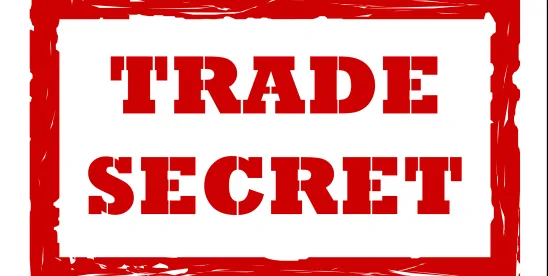The US Court of Appeals for the First Circuit largely affirmed a multimillion-dollar award against a temp agency for misappropriation of trade secrets and unjust enrichment due to its employee’s act of obtaining proprietary information from his fiancée, who worked at a competitor placement firm. BioPoint, Inc. v. Dickhaut, et al., Case No. 23-1575 (1st Cir. July 30, 2024) (Rikelman, Lynch, Howard, JJ.) (Rikelman, dissenting in part).
BioPoint is a Massachusetts-based life sciences consulting firm that places highly skilled candidates in temporary positions at pharmaceutical, biopharmaceutical and medical device companies. Leah Attis was one of the company’s top salespeople. Catapult is a Texas-based placement company. It opened a Boston office in 2017 and hired Attis’s fiancé, Andrew Dickhaut, as managing director. When business did not go well at Catapult’s Boston office, Attis began to help Dickhaut place candidates by giving him proprietary information about candidates and rates from BioPoint’s database, even though Catapult did not initially operate in the life sciences sector. As a result, Catapult eventually entered into a managed services provider agreement with biotechnology company Vedanta, whereby Catapult would manage all of Vedanta’s labor contracts and would have the first opportunity to fill openings there. Attis continued to give Dickhaut information on candidates from BioPoint’s system to help with Vedanta openings.
Upon discovering that it lost a candidate placement to Catapult because of Attis’s interventions, BioPoint fired her in December 2019. BioPoint then sued Catapult and Dickhaut for federal and state law claims, alleging misappropriation of trade secrets, tortious interference, and unfair and deceptive trade practices. The case proceeded to trial, and the district court divided the claims between a jury trial for the legal claims and a bench trial for equitable relief. The jury found that Catapult had misappropriated trade secrets and tortiously interfered with BioPoint’s relationship with the candidate that Attis helped Dickhaut place. The jury awarded BioPoint more than $300,000 in damages. At the bench trial on the equitable claims, the district court found that all profits that Catapult derived from its relationship with Vedanta arose on account of misappropriation of trade secrets and were recoverable as unjust enrichment. The district court awarded treble damages jointly against Dickhaut and Catapult, totaling more than $5 million. Catapult appealed.
While the First Circuit largely affirmed the district court and the jury’s findings, the First Circuit found two errors. First, the Court found that the district court erred in awarding BioPoint both the lost profits from the placement of the candidate and the unjust enrichment that accrued to Catapult as the result of the placement. The Court explained that the law does not permit the lost profits to be counted twice and reduced the award by more than $150,000, which was the amount that the district court had awarded for the loss of the candidate.
Second, the First Circuit found that the district court erred in finding Dickhaut jointly and severally liable for the entirety of his employer’s unjust enrichment, calling it “a bridge too far.” Since the profits accrued to Catapult, not Dickhaut, the Court found that it would be inconsistent with traditional equitable principles to impose joint-and-several liability on Dickhaut as an individual non-owner, non-director employee without analyzing whether or by how much he benefited from the scheme. The First Circuit remanded the separate calculation of Dickhaut’s unjust enrichment to the district court.
Writing in partial dissent, Judge Rikelman took issue with the district court’s unjust enrichment award because it went “far beyond” the jury’s verdict regarding the extent of Catapult’s liability for using BioPoint’s trade secrets. Judge Rikelman argued that the district court erred as a matter of law in awarding the entirety of Catapult’s Vedanta profits to BioPoint because the jury found that only a fraction of Catapult’s life sciences consultant placements at Vedanta were due to trade secret misappropriation.
Practice Note: As the dissent noted, the calculation of unjust enrichment damages in a trade secret misappropriation case “is not a precise science.” A causal nexus must be established between the misappropriation and the enrichment, and the enrichment itself can take several forms and cover a broad array of activity. There are differing legal theories available to assert and calculate unjust enrichment damages.



 />i
/>i

